-
 Bitcoin
Bitcoin $117500
-0.28% -
 Ethereum
Ethereum $3558
0.05% -
 XRP
XRP $3.392
-1.64% -
 Tether USDt
Tether USDt $1.000
-0.04% -
 BNB
BNB $728.3
-0.65% -
 Solana
Solana $175.4
-0.82% -
 USDC
USDC $0.9998
-0.01% -
 Dogecoin
Dogecoin $0.2398
1.83% -
 TRON
TRON $0.3179
-2.38% -
 Cardano
Cardano $0.8204
-0.07% -
 Hyperliquid
Hyperliquid $44.07
-0.62% -
 Stellar
Stellar $0.4581
-1.03% -
 Sui
Sui $3.790
0.35% -
 Chainlink
Chainlink $18.16
1.68% -
 Hedera
Hedera $0.2643
-0.28% -
 Avalanche
Avalanche $24.22
2.25% -
 Bitcoin Cash
Bitcoin Cash $512.2
-0.43% -
 Shiba Inu
Shiba Inu $0.00001479
0.54% -
 Litecoin
Litecoin $111.1
8.86% -
 UNUS SED LEO
UNUS SED LEO $8.986
0.08% -
 Toncoin
Toncoin $3.194
-0.68% -
 Polkadot
Polkadot $4.337
1.87% -
 Uniswap
Uniswap $10.02
-1.95% -
 Monero
Monero $321.7
1.05% -
 Ethena USDe
Ethena USDe $1.001
-0.04% -
 Bitget Token
Bitget Token $4.870
0.73% -
 Pepe
Pepe $0.00001325
1.35% -
 Dai
Dai $0.9999
0.00% -
 Aave
Aave $314.1
-2.09% -
 Cronos
Cronos $0.1203
1.58%
What is a smart contract audit?
A smart contract audit is a critical process where security experts review blockchain code to identify vulnerabilities, ensuring the contract operates safely and as intended.
Jul 03, 2025 at 08:42 am
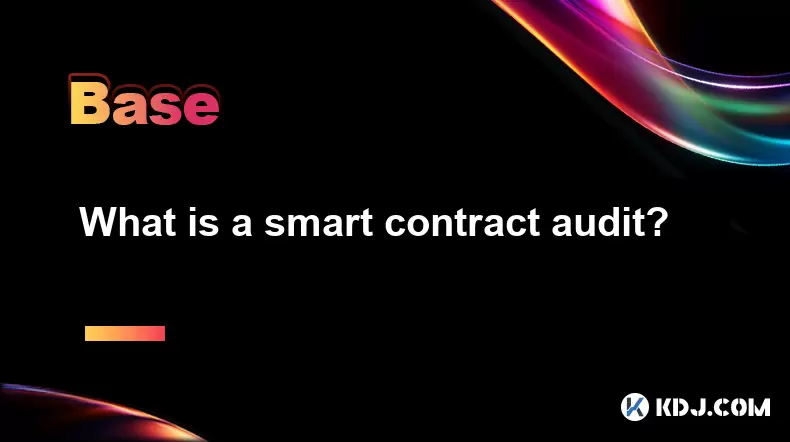
Understanding the Basics of a Smart Contract Audit
A smart contract audit refers to a comprehensive review and analysis of the code that powers a smart contract on a blockchain platform. This process is conducted by security experts or specialized auditing firms to identify potential vulnerabilities, bugs, or inefficiencies in the contract's source code. Since smart contracts are immutable once deployed on the blockchain, any flaws present at deployment can lead to irreversible consequences such as loss of funds or data manipulation.
The primary goal of a smart contract audit is to ensure that the code behaves exactly as intended under all possible scenarios. Auditors examine both the logic and structure of the code to detect issues like reentrancy attacks, integer overflows, gas limit problems, and improper access controls. These audits often involve manual code reviews alongside automated testing tools designed specifically for blockchain environments.
Why Are Smart Contract Audits Necessary?
Smart contracts form the backbone of decentralized applications (dApps) and are frequently used to manage large amounts of digital assets. A single bug in the contract could allow malicious actors to exploit the system, draining funds or disrupting operations. Therefore, conducting a thorough smart contract audit is not just a best practice—it’s a necessity for ensuring trust and reliability in decentralized systems.
Many investors and users expect projects to have undergone a formal audit before participating in token sales or interacting with dApps. This expectation has made third-party audits a standard part of launching new blockchain-based services. Projects that skip this step may face skepticism from the community and regulatory bodies alike.
What Does the Smart Contract Audit Process Involve?
The audit process typically follows several structured stages:
- Code Submission: The development team provides the full source code along with documentation explaining the intended functionality of the contract.
- Preliminary Review: Auditors begin with an initial assessment to understand the contract architecture and identify obvious issues.
- Manual Code Inspection: Experts manually inspect each line of code to uncover logical errors, poor coding practices, and potential attack vectors.
- Automated Testing: Tools like Slither, Oyente, or Mythril are used to scan for known vulnerabilities across the codebase.
- Reporting Findings: All identified issues are categorized by severity—critical, high, medium, low—and detailed reports are generated with suggested fixes.
- Remediation and Re-audit: After developers address the findings, auditors perform follow-up checks to confirm that all issues have been resolved properly.
Common Vulnerabilities Identified During a Smart Contract Audit
During a typical smart contract audit, auditors look for a variety of common vulnerabilities:
- Reentrancy: A vulnerability where an external contract call allows a recursive withdrawal of funds before the initial transaction completes, potentially leading to fund drainage.
- Integer Overflow/Underflow: Mathematical operations that result in values outside the range of storage types, which can be exploited to manipulate balances or states.
- Unprotected Functions: Functions that lack proper access control mechanisms, allowing unauthorized execution.
- Gas Limit Issues: Loops or computations that exceed Ethereum’s block gas limit, causing transactions to fail unexpectedly.
- Timestamp Dependence: Contracts relying on block timestamps can be manipulated by miners, leading to unpredictable behavior.
Each of these issues requires careful attention during the audit process to ensure the integrity and safety of the deployed contract.
Choosing the Right Audit Service Provider
Selecting a reputable audit firm or individual auditor is crucial for receiving a meaningful smart contract audit. Key factors to consider include:
- Experience: Look for auditors with a proven track record in blockchain security and experience with similar contract structures.
- Transparency: The audit report should clearly outline findings, provide actionable recommendations, and disclose methodologies used.
- Community Reputation: Established firms often publish past audit reports publicly, offering insights into their quality and depth of work.
- Support for Revisions: Ensure the provider offers support during the remediation phase and is willing to conduct follow-up audits if necessary.
Projects should also be wary of audit services that offer quick turnaround times without thorough analysis, as these may overlook critical vulnerabilities.
Frequently Asked Questions (FAQs)
Q: Can a smart contract audit completely eliminate all risks?
A: No, while a smart contract audit significantly reduces risk, it cannot guarantee 100% security due to evolving threats and unforeseen edge cases.
Q: How long does a typical smart contract audit take?
A: The duration varies based on the complexity of the contract but generally ranges from one to four weeks.
Q: Is a smart contract audit legally required?
A: Currently, there are no universal legal mandates requiring audits, although many jurisdictions and platforms strongly recommend them for compliance and safety.
Q: What happens after an audit is completed?
A: Developers implement the recommended fixes, and a final verification audit may be conducted to ensure all vulnerabilities have been addressed effectively.
Disclaimer:info@kdj.com
The information provided is not trading advice. kdj.com does not assume any responsibility for any investments made based on the information provided in this article. Cryptocurrencies are highly volatile and it is highly recommended that you invest with caution after thorough research!
If you believe that the content used on this website infringes your copyright, please contact us immediately (info@kdj.com) and we will delete it promptly.
- SUI Altcoin: Primed for Potential 100x Gains?
- 2025-07-20 04:50:12
- Panicked, Child, Swallowed Coin: A Parent's Worst Nightmare (and What to Do)
- 2025-07-20 04:35:12
- WLFI Token Tradability: World Liberty Finance's Bold Move Under Trump's Crypto Wing
- 2025-07-20 04:50:12
- Floki Price Rockets: Breakout Rally or Meme Coin Mirage?
- 2025-07-20 04:35:12
- Tinubu, the North, and Appointments: Too Little, Too Late?
- 2025-07-20 03:20:15
- Stellar Blade Hacked: When Crypto Scams Target Your Favorite Games
- 2025-07-20 03:50:12
Related knowledge
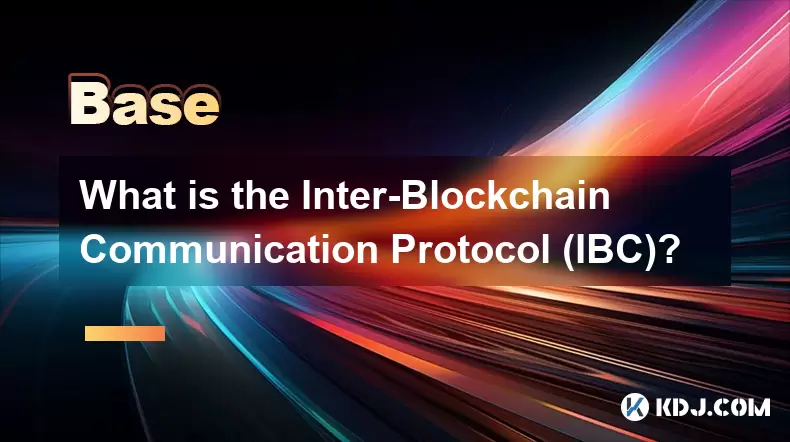
What is the Inter-Blockchain Communication Protocol (IBC)?
Jul 19,2025 at 10:43am
Understanding the Inter-Blockchain Communication Protocol (IBC)The Inter-Blockchain Communication Protocol (IBC) is a cross-chain communication protoc...
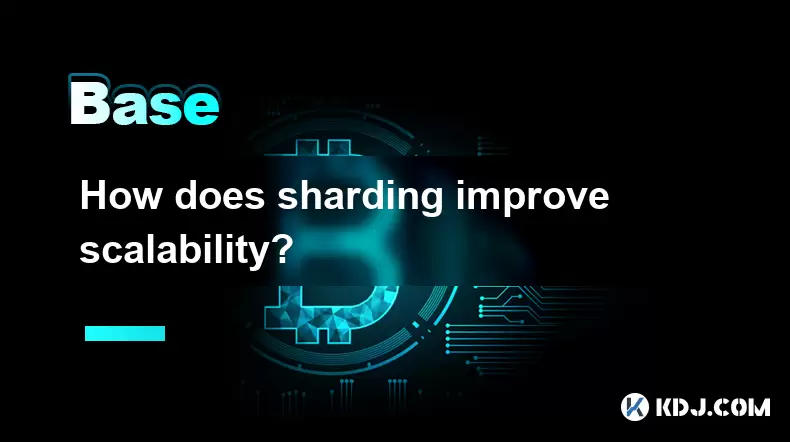
How does sharding improve scalability?
Jul 20,2025 at 01:21am
Understanding Sharding in BlockchainSharding is a database partitioning technique that is increasingly being adopted in blockchain technology to enhan...
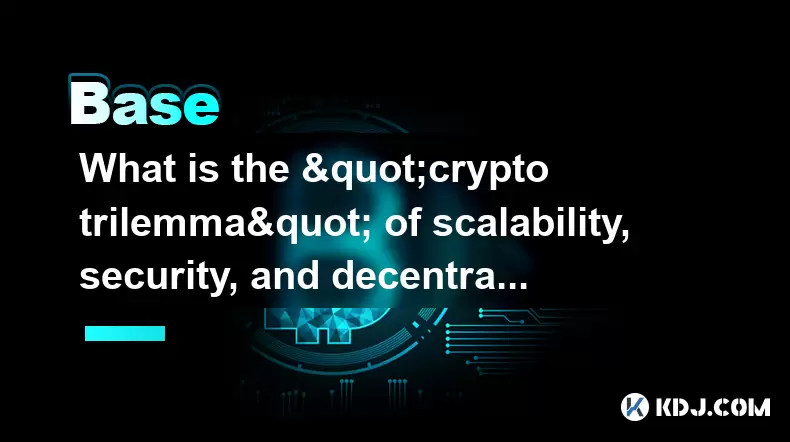
What is the "crypto trilemma" of scalability, security, and decentralization?
Jul 19,2025 at 06:28pm
Understanding the Concept of the Crypto TrilemmaThe crypto trilemma refers to the challenge of simultaneously achieving scalability, security, and dec...
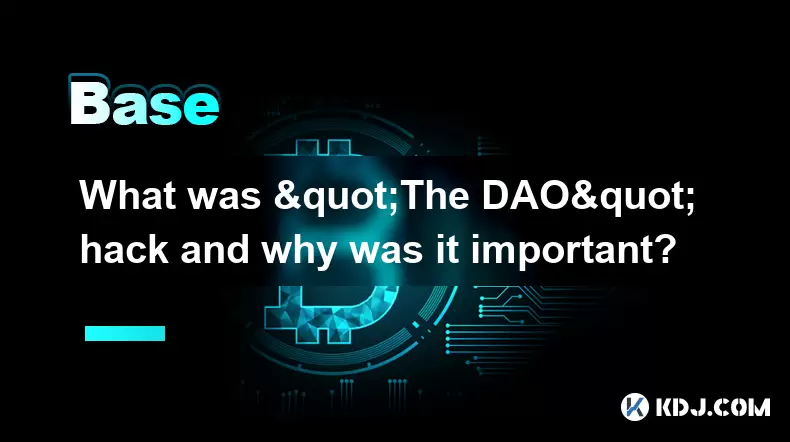
What was "The DAO" hack and why was it important?
Jul 19,2025 at 09:08pm
Background of 'The DAO''The DAO' (Decentralized Autonomous Organization) was a venture capital fund built on the Ethereum blockchain, launched in Apri...
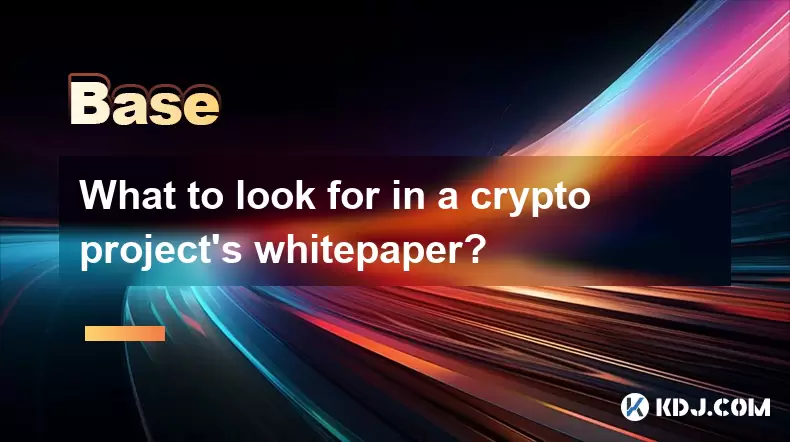
What to look for in a crypto project's whitepaper?
Jul 19,2025 at 01:42pm
Understanding the Purpose of a WhitepaperA whitepaper is a foundational document for any cryptocurrency project, often serving as the first point of c...
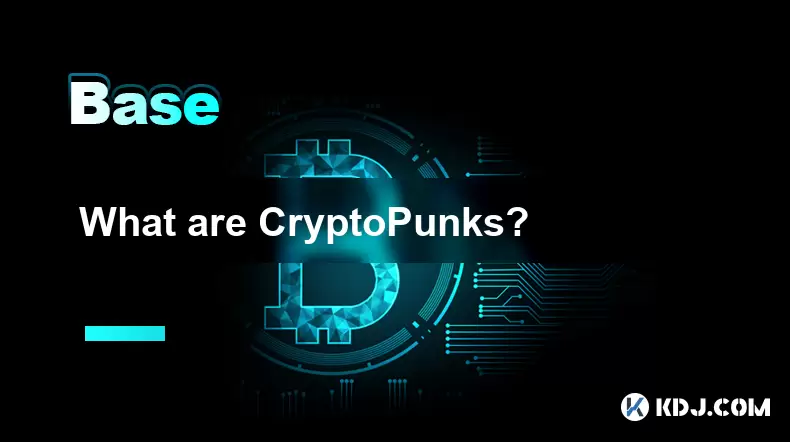
What are CryptoPunks?
Jul 19,2025 at 08:28am
Understanding the Basics of Bitcoin MiningBitcoin mining is the process through which new Bitcoin is introduced into circulation and transactions are ...

What is the Inter-Blockchain Communication Protocol (IBC)?
Jul 19,2025 at 10:43am
Understanding the Inter-Blockchain Communication Protocol (IBC)The Inter-Blockchain Communication Protocol (IBC) is a cross-chain communication protoc...

How does sharding improve scalability?
Jul 20,2025 at 01:21am
Understanding Sharding in BlockchainSharding is a database partitioning technique that is increasingly being adopted in blockchain technology to enhan...

What is the "crypto trilemma" of scalability, security, and decentralization?
Jul 19,2025 at 06:28pm
Understanding the Concept of the Crypto TrilemmaThe crypto trilemma refers to the challenge of simultaneously achieving scalability, security, and dec...

What was "The DAO" hack and why was it important?
Jul 19,2025 at 09:08pm
Background of 'The DAO''The DAO' (Decentralized Autonomous Organization) was a venture capital fund built on the Ethereum blockchain, launched in Apri...

What to look for in a crypto project's whitepaper?
Jul 19,2025 at 01:42pm
Understanding the Purpose of a WhitepaperA whitepaper is a foundational document for any cryptocurrency project, often serving as the first point of c...

What are CryptoPunks?
Jul 19,2025 at 08:28am
Understanding the Basics of Bitcoin MiningBitcoin mining is the process through which new Bitcoin is introduced into circulation and transactions are ...
See all articles

























































































